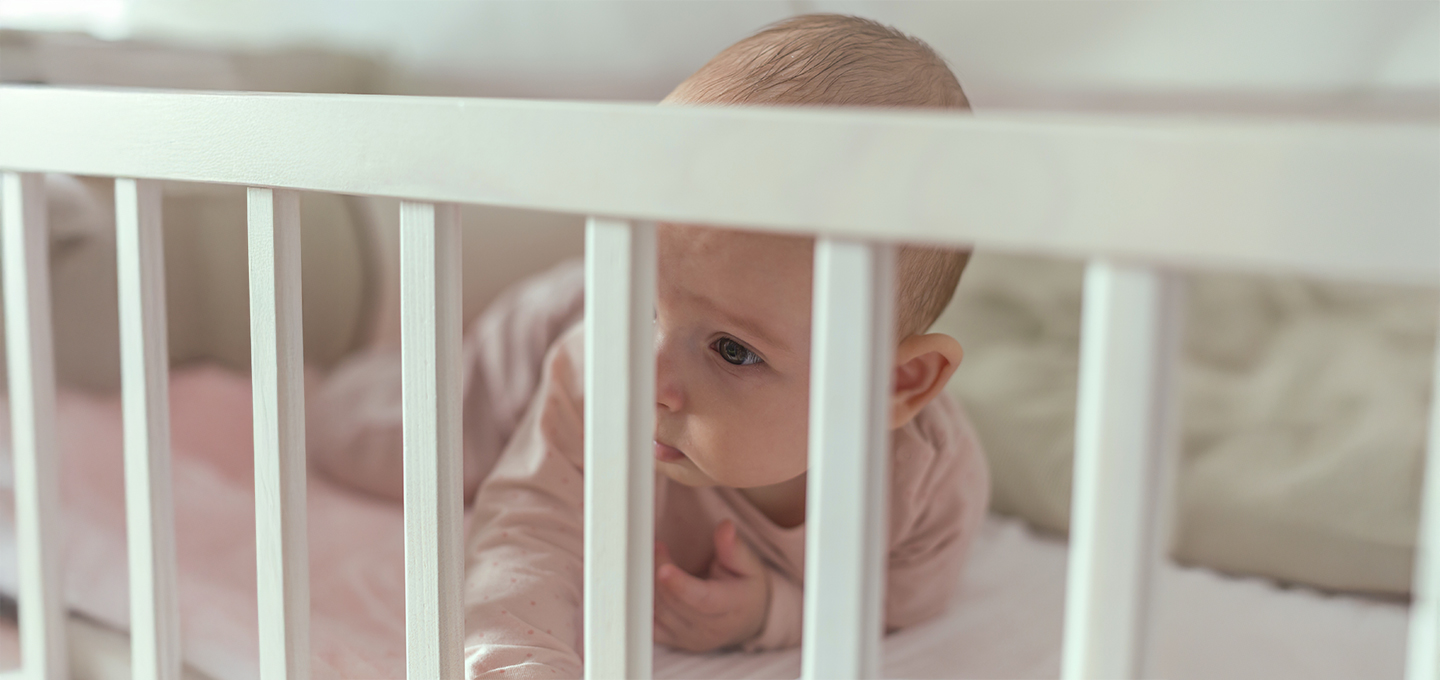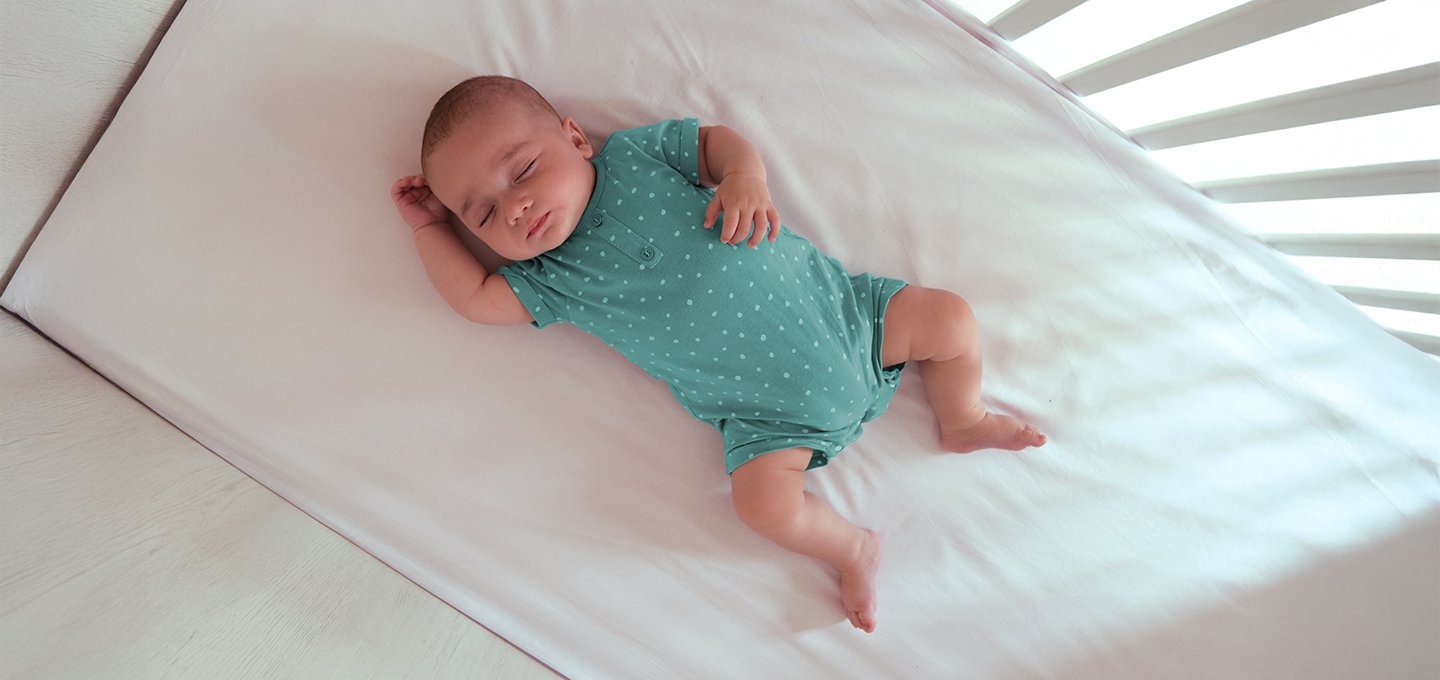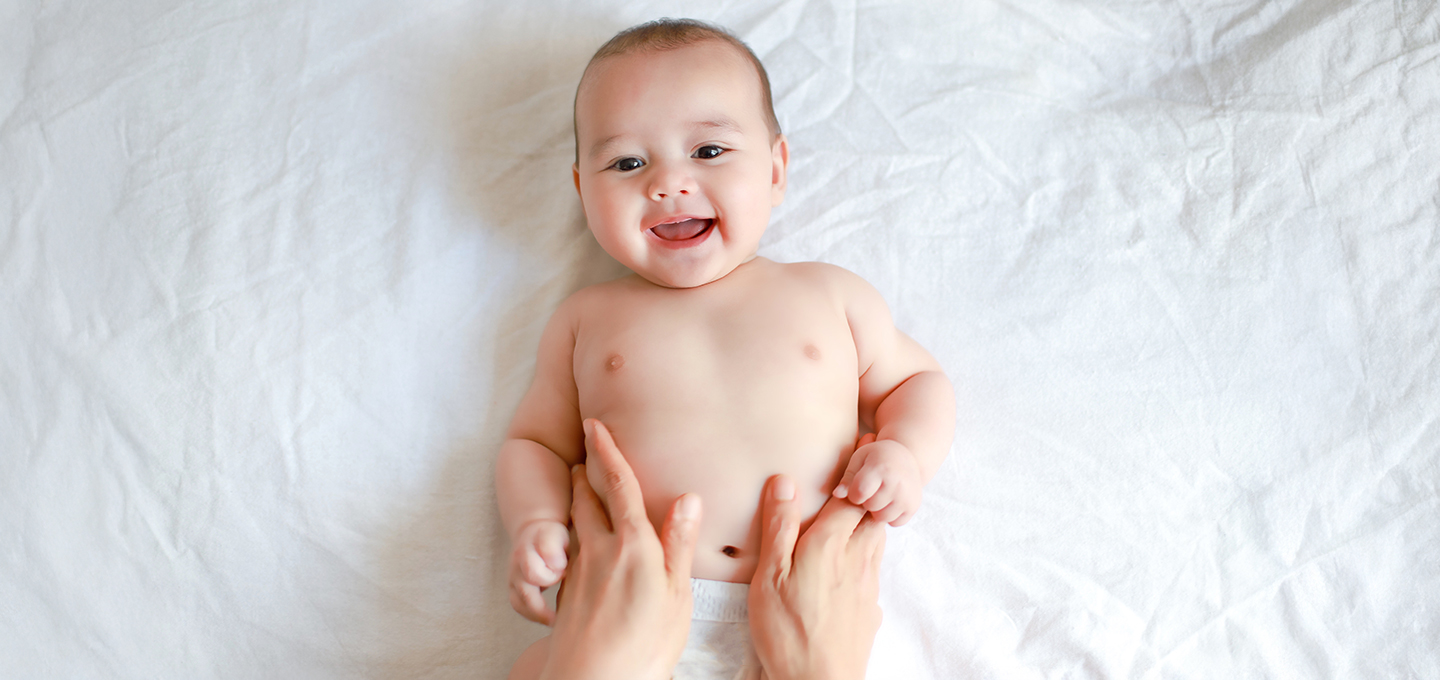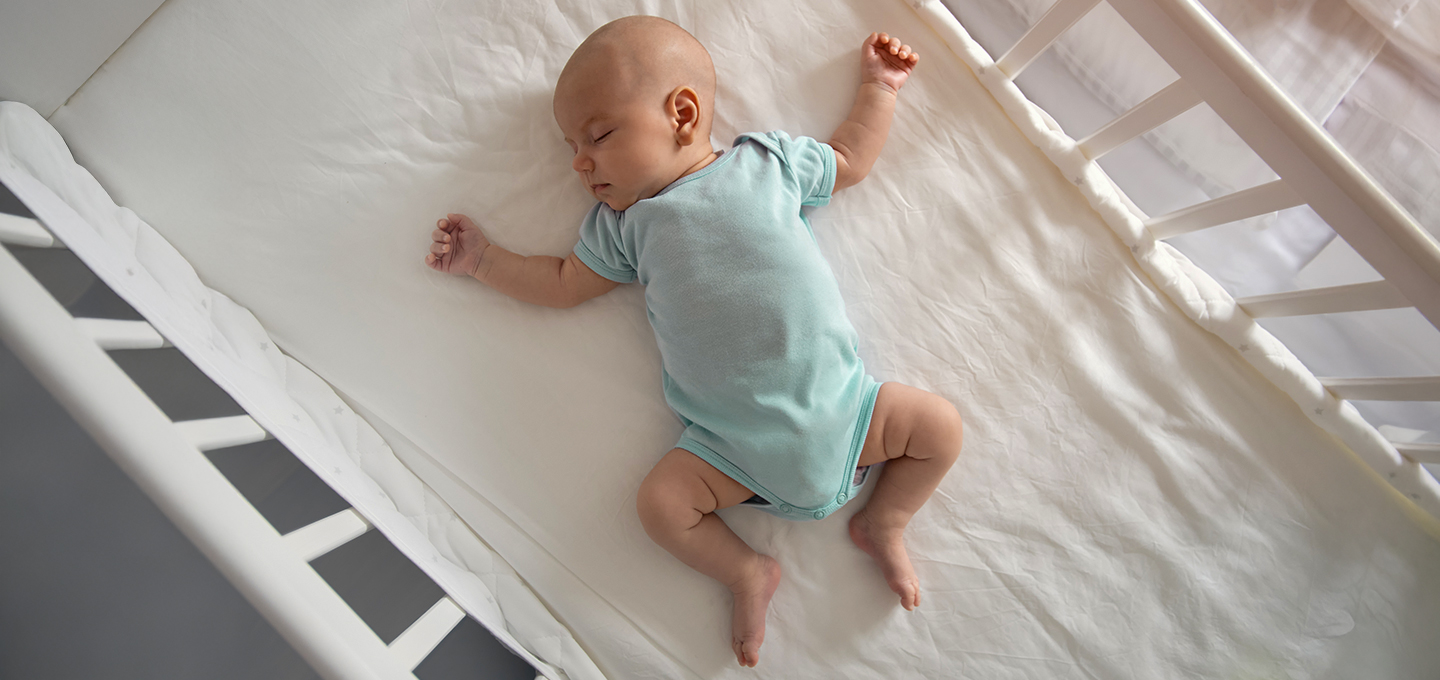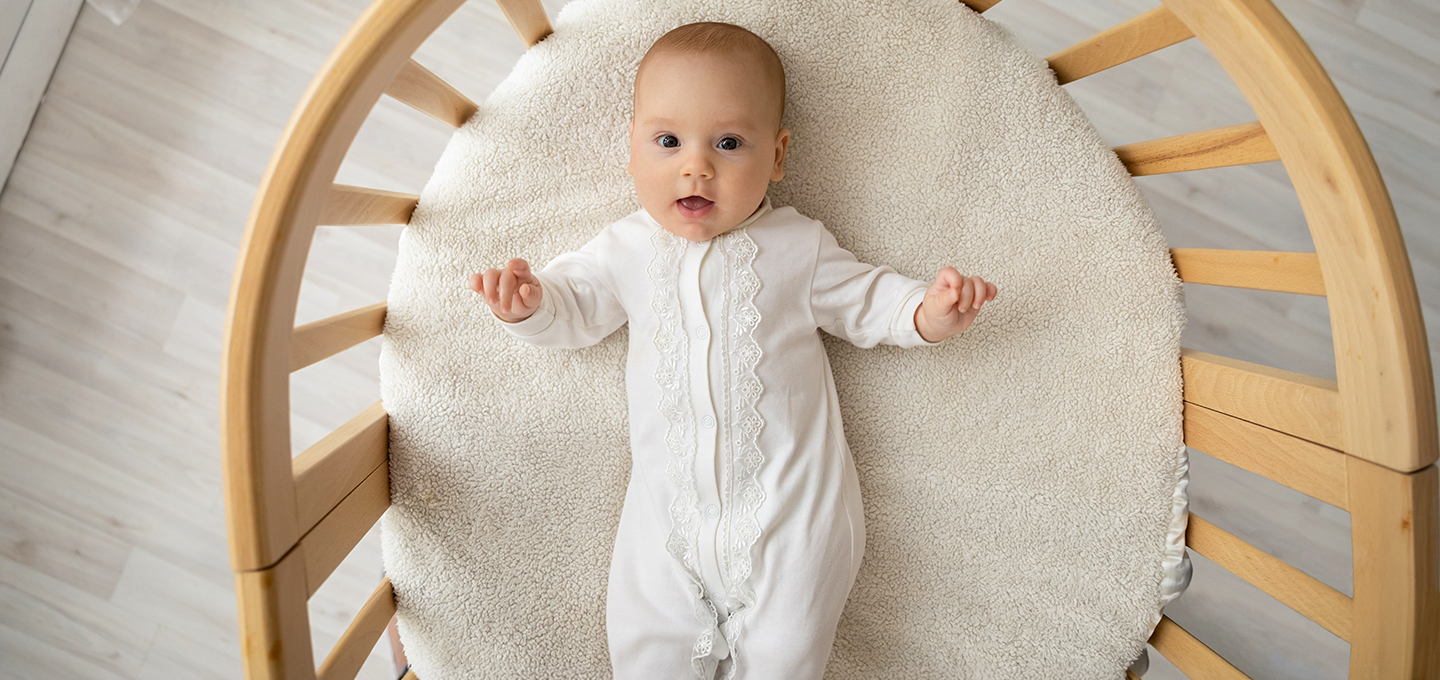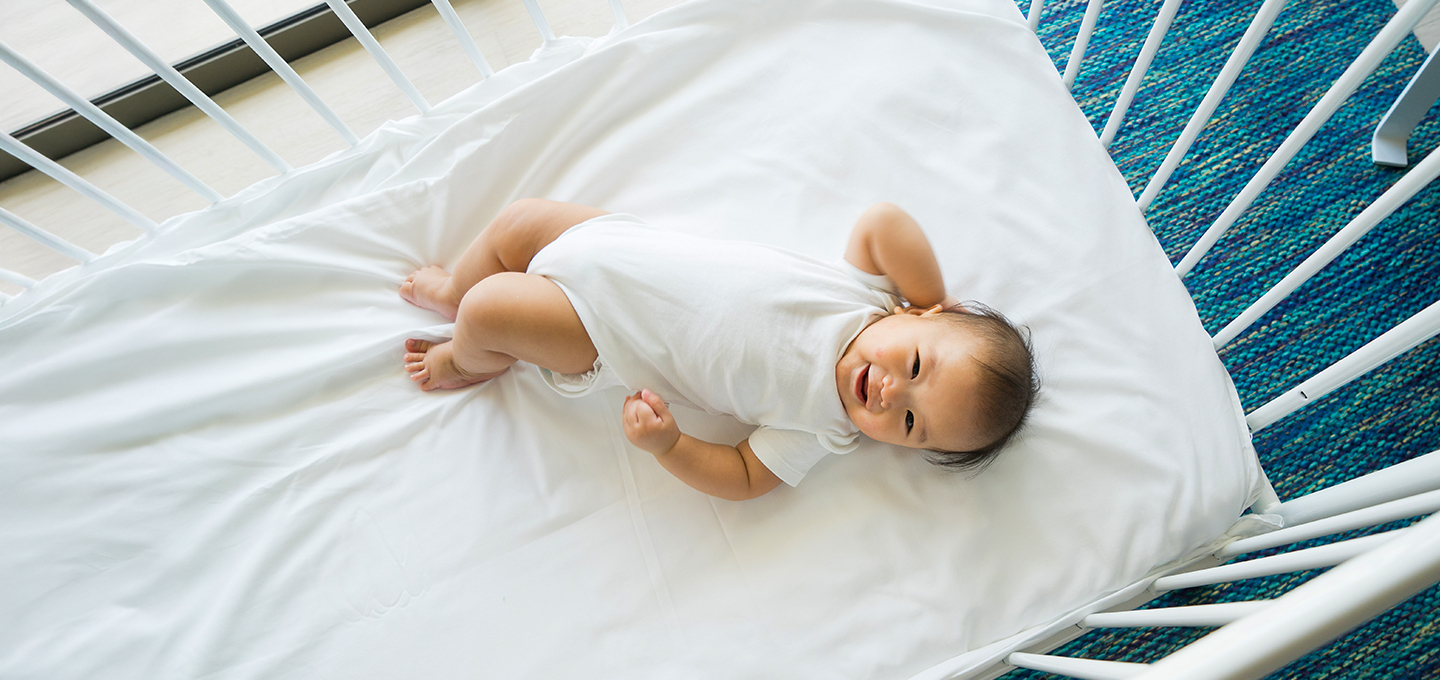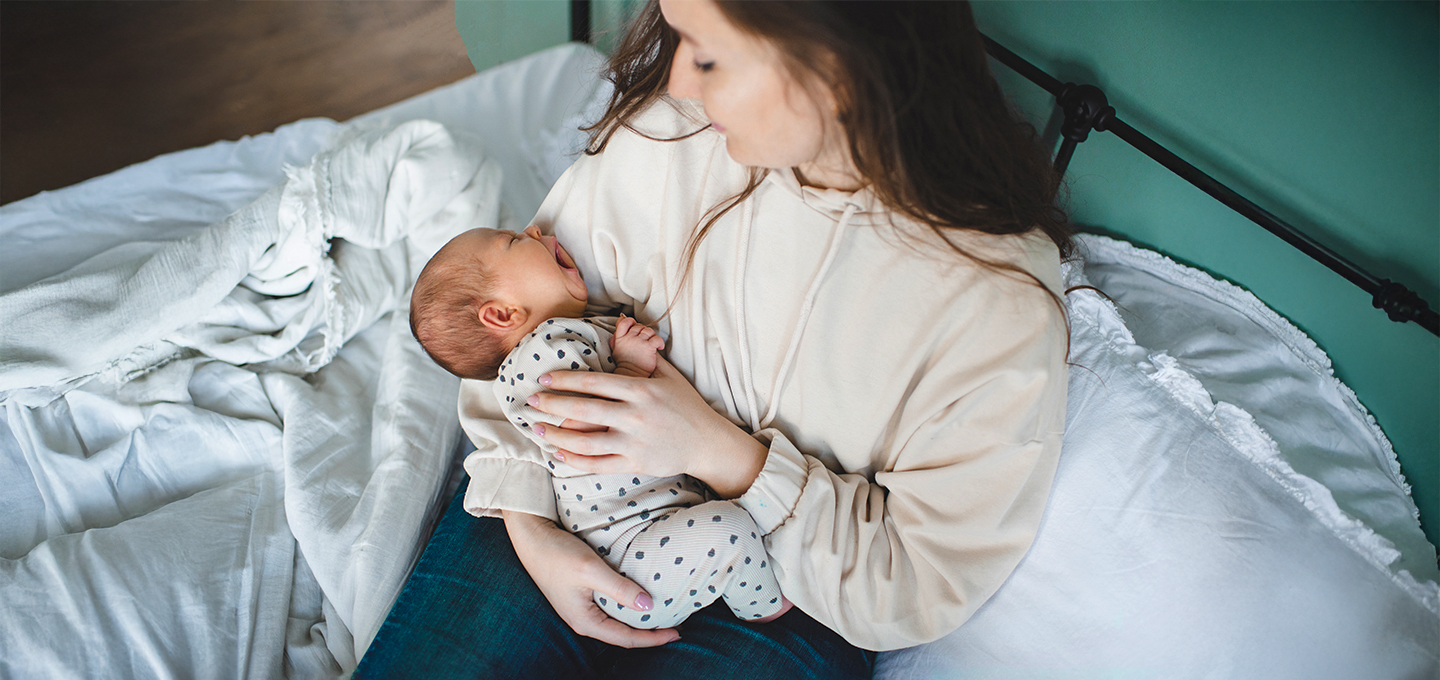
All About Baby Sleep Cycles


IN THIS ARTICLE
Understanding your baby's sleep cycle is key to promoting healthy rest and development. Unlike adults, babies have shorter sleep cycles, typically lasting 40 to 60 minutes, and they spend more time in active (REM) sleep. This means they wake more frequently and may need help transitioning between cycles. As babies grow, their sleep patterns gradually mature, leading to longer stretches of deep sleep and fewer nighttime awakenings.
Here’s a quick breakdown of what to expect:
In this article, we’ll explore how the baby sleep cycle works, how it changes over time, and practical tips to support better sleep for both you and your baby.
Why Is Sleep Important for Your Baby?
Sleep is crucial for your baby's growth and development. During sleep, especially in the REM (Rapid Eye Movement) stage, your baby's brain is actively processing information, aiding in memory consolidation and learning. Adequate sleep supports physical growth, emotional regulation, and overall health.
What Is a Sleep Cycle for Babies?
A sleep cycle refers to the progression through different stages of sleep, including both REM (active) and non-REM (quiet) sleep. Unlike adults, babies have shorter sleep cycles, typically lasting 40 to 60 minutes. This means they transition between light and deep sleep more frequently, leading to more awakenings during the night.
What Are the Stages of a Baby’s Sleep Cycle?
Understanding the different stages of sleep in babies can help you better support healthy sleep habits and recognize normal sleep behaviors.
While baby sleep is medically divided into REM and non-REM, many sleep experts describe four observable phases to help parents understand what’s happening as their baby falls and stays asleep. A baby’s phases of sleep repeat multiple times throughout the night and during naps.
While adults experience longer cycles, newborn sleep stages are shorter and more fragmented. In general, there are about four to five stages of the sleep cycle, alternating between light and deep sleep.
Here’s a breakdown of the sleep cycle stages in babies:
These four phases of the sleep cycle repeat about every 40 to 60 minutes in newborns and get longer as your baby grows. Recognizing the stages in the sleep cycle can help you respond more effectively to your baby's sleep cues and create a more consistent routine.
How Long Is a Newborn and Baby Sleep Cycle?
So, how long does a sleep cycle last? Newborns have sleep cycles lasting about 40 to 50 minutes, which is equally divided between REM (active) and Non-REM (quiet) at this stage. As they grow, the time spent in REM sleep decreases and the duration of each cycle increases:
Newborn Sleep Stages Chart
For a clearer idea of how your newborn’s sleep cycle might look, check out our graph below showing a “normal” sleep cycle:
How Is an Infant’s Sleep Schedule Different from an Adult’s?
When comparing the adult sleep cycle vs. baby, the differences are significant—not just in duration, but in structure and purpose.
Newborn Sleep Cycle
As a new (and potentially exhausted) parent, you may be wondering, “How often do newborns sleep?” Newborns sleep approximately 16 to 17 hours per day, but as we mentioned earlier, this sleep is fragmented into short periods of 1 to 2 hours. This pattern is due to their need for frequent feedings and undeveloped sleep-wake cycles.
These frequent wakeups may make it seem as though you’ll never get a good night’s sleep again. And even if it doesn’t seem like it right now, setting a sleeping schedule for your baby can make your life easier. Your baby benefits from the routine, better ensuring they’re getting the right amount of sleep on a daily basis, which means you’re one step closer to getting more sleep yourself!
In other words, don’t despair! Your baby’s sleep patterns are emerging, and with the right tools you can better set a more predictable schedule.
Setting Up a Newborn Sleep Schedule
Whether your little one has just arrived, they’re two-months-old, or they’re past the newborn stage, establishing a sleep schedule for your baby involves observing their natural sleep patterns and creating a consistent routine. Here are some tips:
How Long Should Infants Sleep at Each Stage?
Wondering, “How much and how long do newborns and older babies sleep?” The amount of time your baby spends sleeping will vary from day to day and will change as they get older. The newborn and baby sleep chart below can help you get a better idea of how long your baby’s sleep cycles may last, the average amount of time they’ll sleep in a 24-hour period, and how many naps they’ll typically take. This can help guide you when creating your infant’s sleep schedule as they grow.
Baby Sleep Chart
Remember, these are merely averages, and every baby is unique. Speak to your baby’s healthcare provider if you have any concerns or questions regarding sleep. You can also check out our dedicated guide on baby sleep patterns for more information.
When Do Newborn Babies Start Sleeping Longer?
After many sleepless nights, it’s natural to wonder, “When do babies connect sleep cycles?” At 2 to 3 months old, your baby may begin developing more regular sleep patterns enabling them to sleep longer at night as their sleep cycles become longer. By the age of 3 to 4 months old, your baby may be ready to start learning the skill of self-soothing, a critical component in their ability to learn to fall asleep independently.
Often around 8 to 9 months of age is when babies start “sleeping through the night,” which can be defined as sleeping for at least 6 to 8 hours at a time. However, it’s important to remember that baby sleep isn’t a linear process and regressions can occur, especially in the first year. Be patient and stick to your soothing bedtime routine.
How to Help Your Baby Connect Sleep Cycles
To assist your baby in transitioning smoothly between sleep cycles:
To help you navigate your baby’s sleeping patterns, our Sleep Coaching experts have created a free sleep assessment tool. In just a couple of minutes we can understand enough to create a Smart Sleep Program designed specifically for your baby tailored to help you get sleep on track. Our Smart Sleep Coach app uses psychology, support and education to deliver sustainable sleep results for your baby and you, a plan built around your unique family.
FAQS AT A GLANCE
Newborn sleep cycles are typically 40 to 60 minutes long. As babies grow, their sleep cycles gradually lengthen and begin to resemble adult patterns, usually around 70 to 90 minutes by toddlerhood.
The Bottom Line
As a parent of a newborn, you may feel that a good night’s sleep is a far-away dream, but with the right expectations and tools in place, that dream can become a reality sooner than you think. Understanding your baby’s unique sleep cycles and patterns can help you set a schedule that works for everyone—how’s that for a bedtime story with a happy ending!
- American Academy of Pediatrics. Caring for Your Baby and Young Child: Birth to Age 5, 7th ed. (New York: Bantam Books, 2019).
- Healthychildren. Getting Your Baby to Sleep
- Healthychildren. Safe Sleep Tips for Sleep-Deprived Parents
- Healthychildren. Self-Soothing: Help Your Baby Learn This Life Skill
- Healthychildren. Stages of Newborn Sleep
- Kids health. Kids and Sleep
- Kids health. Sleep and Your Newborn
- Kids health. Sleep and Your 4- to 7-Month-Old
- Kids health. Sleep and Your 8- to 12-Month-Old
- La Leche League International. Infant Sleep
- Mayo Clinic. Baby naps: Daytime sleep tips









